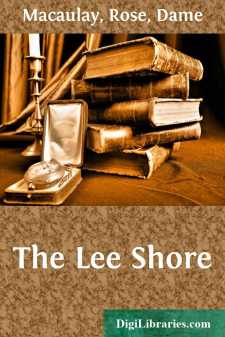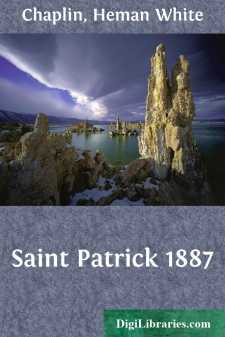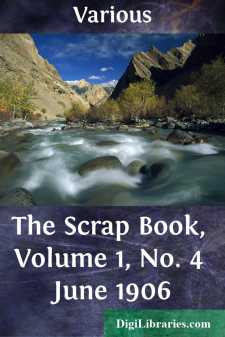Categories
- Antiques & Collectibles 13
- Architecture 36
- Art 48
- Bibles 22
- Biography & Autobiography 813
- Body, Mind & Spirit 142
- Business & Economics 28
- Children's Books 17
- Children's Fiction 14
- Computers 4
- Cooking 94
- Crafts & Hobbies 4
- Drama 346
- Education 46
- Family & Relationships 57
- Fiction 11829
- Games 19
- Gardening 17
- Health & Fitness 34
- History 1377
- House & Home 1
- Humor 147
- Juvenile Fiction 1873
- Juvenile Nonfiction 202
- Language Arts & Disciplines 88
- Law 16
- Literary Collections 686
- Literary Criticism 179
- Mathematics 13
- Medical 41
- Music 40
- Nature 179
- Non-Classifiable 1768
- Performing Arts 7
- Periodicals 1453
- Philosophy 64
- Photography 2
- Poetry 896
- Political Science 203
- Psychology 42
- Reference 154
- Religion 513
- Science 126
- Self-Help 84
- Social Science 81
- Sports & Recreation 34
- Study Aids 3
- Technology & Engineering 59
- Transportation 23
- Travel 463
- True Crime 29
Sort by:
by:
Rose Macaulay
A HEREDITARY BEQUEST During the first week of Peter Margerison's first term at school, Urquhart suddenly stepped, a radiant figure on the heroic scale, out of the kaleidoscopic maze of bemusing lights and colours that was Peter's vision of his new life. Peter, seeing Urquhart in authority on the football field, asked, "Who is it?" and was told, "Urquhart, of course," with the...
more...
One of the places which they point out on Ship Street is the Italian fruit-shop on the corner of Perry Court, before the door of which, six years ago, Guiseppe Cavagnaro, bursting suddenly forth in pursuit of Martin Lavezzo, stabbed him in the back, upon the sidewalk. "All two" of them were to blame, so the witnesses said; but Cavagnaro went to prison for fifteen years. That was the same length...
more...
by:
Various
PART I PUPPYHOOD "What other nature yours than of a child Whose dumbness finds a voice mighty to call, In wordless pity, to the souls of all, Whose lives I turn to profit, and whose mute And constant friendship links the man and brute?" Still half in dream, upon the stair I hearA patter coming nearer and more near,And then upon my chamber doorA gentle tapping,For dogs, though proud, are...
more...
by:
Henry S. Fitch
Introduction The eastern woodrat exerts important effects on its community associates by its use of the vegetation for food, by providing shelter in its stick houses for many other small animals, and by providing a food supply for certain flesh-eaters. In the course of our observations on this rodent on the University of Kansas Natural History Reservation, extending over an eight-year period, from...
more...
by:
Anonymous
OLD TESTAMENT STORIES ADAM AND EVE. In the beginning God made the heaven and the earth He also made the sun, moon, and stars; trees, flowers, and all vegetable life; and all animals, birds, fishes, and insects. Then God made man. The name of the first man was Adam, and the first woman was Eve. Both were placed in a beautiful garden called the Garden of Eden, where they might have been happy continually...
more...
by:
Ed Emshwiller
n the morning of June 15th, Guy Burckhardt woke up screaming out of a dream. It was more real than any dream he had ever had in his life. He could still hear and feel the sharp, ripping-metal explosion, the violent heave that had tossed him furiously out of bed, the searing wave of heat. He sat up convulsively and stared, not believing what he saw, at the quiet room and the bright sunlight coming in...
more...
MY CLUBBING OFFERS This is the TWENTIETH YEAR that I have been in the subscription business, and in this Catalogue No. 39, I am giving the best bargains in periodical literature that have ever been placed before the public. In order to enable me to do this the publishers of these periodicals have sacrificed their prices until in a great many cases they do not obtain from the subscribers to these club...
more...
by:
David Morton
WOODEN SHIPSThey are remembering forests where they grew,—The midnight quiet, and the giant dance;And all the murmuring summers that they knewAre haunting still their altered circumstance.Leaves they have lost, and robins in the nest,Tug of the goodly earth denied to ships,These, and the rooted certainties, and rest,—To gain a watery girdle at the hips.Only the wind that follows ever aft,They greet...
more...
by:
Various
The Latest Viewpoints of Men Worth While. Praise and Blame for American Women From Dr. Emil Reich—Earl Grey and Secretary Root Discuss the Relations of Canada and the United States—William J. Bryan Defines the Limits of Socialism—Rabbi Schulman Explains Certain Prejudices Against the Jews—William T. Jerome, Senator Lodge, and Norman Hapgood Criticize or Defend the Noble Army of...
more...
by:
Ann Wilson
Sandeman, 2624 CE It was midafternoon before Dana's hunger overcame her excitement at being on Sandeman, hiking with her chosen lord—her thakur, in the Sandeman term she preferred—and trying to track a balik. She hadn't gotten within two hundred meters of the wolflike predator, and had finally realized she wasn't going to, so the two found a small clearing with bare rocks which made...
more...











